
Use code 12DAYS for free shipping on all 12 days of Christmas promotional products
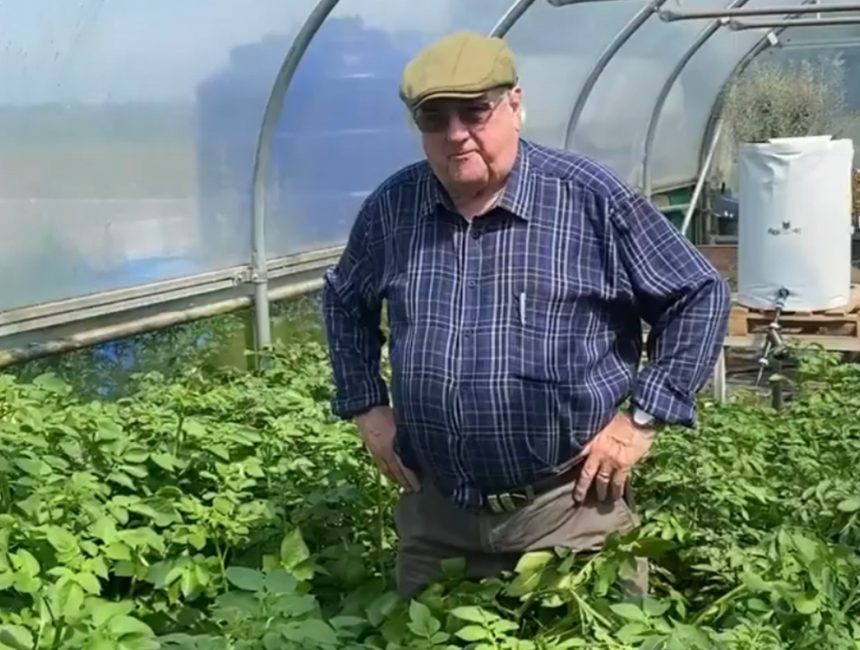
When it comes to wrapping stuff up you’d do well to improve on skin. As long you’re not wrapping stuff up as a gift. The essential functions that a biological skin performs make it a veritable living miracle. Between keeping moisture in, facilitating heat exchange, and keeping nasties out, it’s understandable that such a highly functional component on any living thing takes a few knocks. In the realm of cropping veg for the dinner table, misshapes and blemished skin are to be embraced, its no big thing, it tells its own tale, cut it some slack.
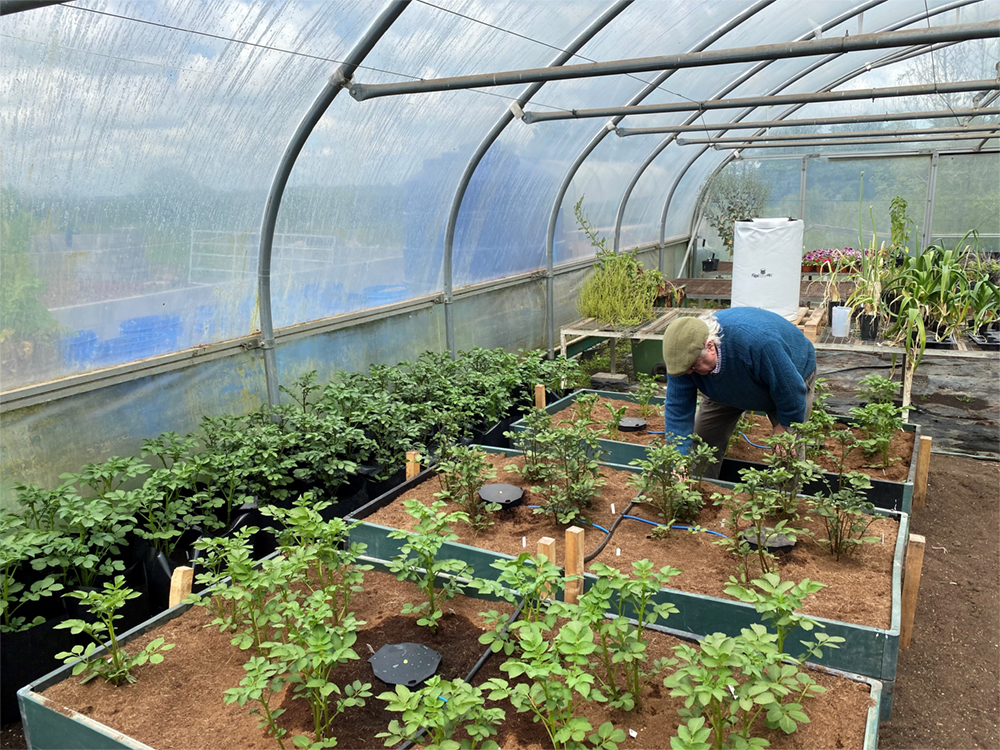
There is, however, pleasure to be had in honing the art of pristine veg with impeccable skin. This usually involves giving the crop the absolute best, and preserving it from adversity. Nowhere is such devotion and attention to detail more evident than in veg competition circles. Of late we’ve been following competition grower Medwyn Williams on his quest to reach the pinnacle of potato growing with AutoPot. If you applaud the pursuit of colourful, silky-smooth specimens, if you want some tips from the master, if you like to see excellence in any discipline of growing, if you just like potatoes, then read on.
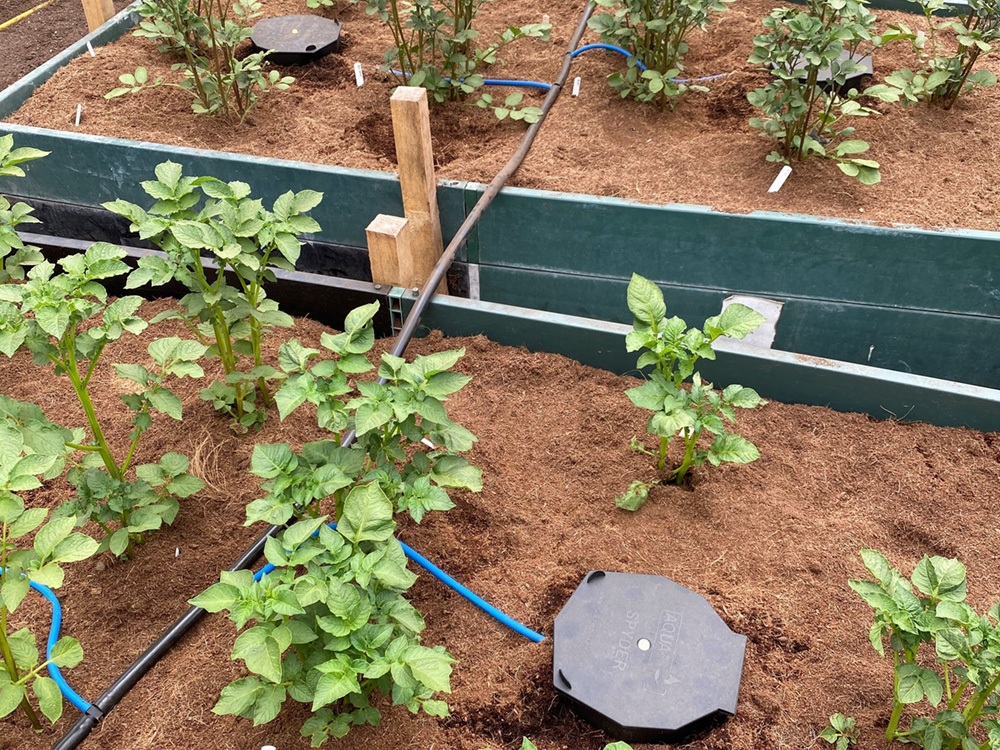
What really gets a competition veg grower going? Exquisite finish and a sufficiently colourful variety to light up a display are high ranking priorities. Medwyn kindly talked us through his putative potato patch. For 2021 this includes “Red Duke of York, for its vivid colour, Winston a white-skinned, classic show cultivar, and Bonnie, which should develop a very smooth, creamy skin, a pink splash on the rose-end.” Poised to swoop upon the competition, Kestrel is another “top-flight exhibition variety” that should end up “oval in shape with a lovely purple splash.” Elsewhere “Casablanca is a white, very early variety, and lastly there’s Lady Christl – my favourite first-early to eat, a long oval shape with a white creamy skin and pale yellow flesh, matches well with a knob of butter.” Delicious prospects but how should one grow this premier-class produce?
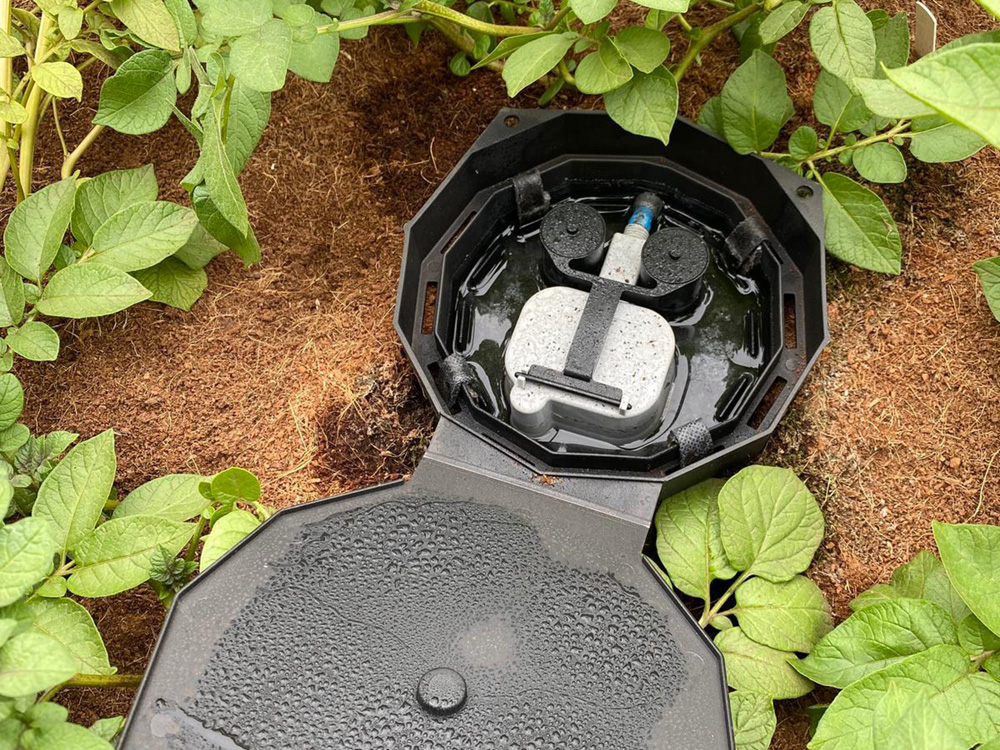
Potatoes aren’t often a first choice with AutoPot modules. To achieve reasonable numbers or sizes only the 25 L / 6.6 gal 1Pot XL module is nearly capacious enough. Happily there’s more than one way to grow, then admire, and then skin a potato. AQUAbox Spyder allows you to water the kind of raised beds, commonly enjoyed by root veg, to perfection. Don’t have a raised bed? Not yet you don’t!
As Medwyn has demonstrated with his potato trial, such beds are incredibly easy to create. Whether using new materials, reclaimed materials, or dedicated clip-together sections like Medwyn’s Link-a-Bord boxes you can be off to a flyer with a versatile bed in no time. By hopping into said bed with an AQUAbox you add power-free, zero-waste watering and feeding that can be left unattended for weeks at a time.
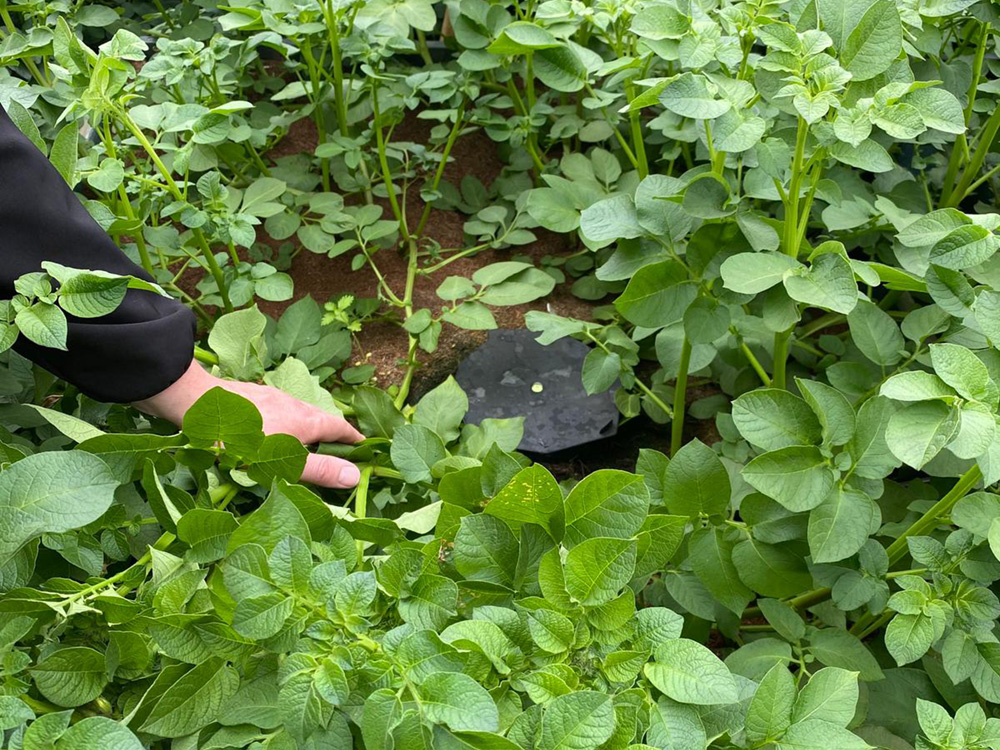
For the uninitiated, AQUAbox comprises the box itself, an AQUAvalve5, pipework and fittings to connect to any reservoir, and strips of capillary matting. The box is buried in the bed with it’s lid at surface-level. The AQUAvalve sits in the box hooked up to the reservoir. The capillary matting strips radiate out from the AQUAbox at a slight downward incline, irrigating areas of the bed responsively and serving plant requirements in a way that hand-watering would struggle to anticipate. In his polytunnel on Anglesey Medwyn has two AQUAboxes per potato bed with six wicks running from each box. Up to 12 strips can be attached to each box if desired. Medwyn has a heck of a lot of experience with potatoes grown by other means. Combine that experience with his first tilt at spuds using the AQUAbox and you’ve got invaluable insights – which he’s been keen to share.
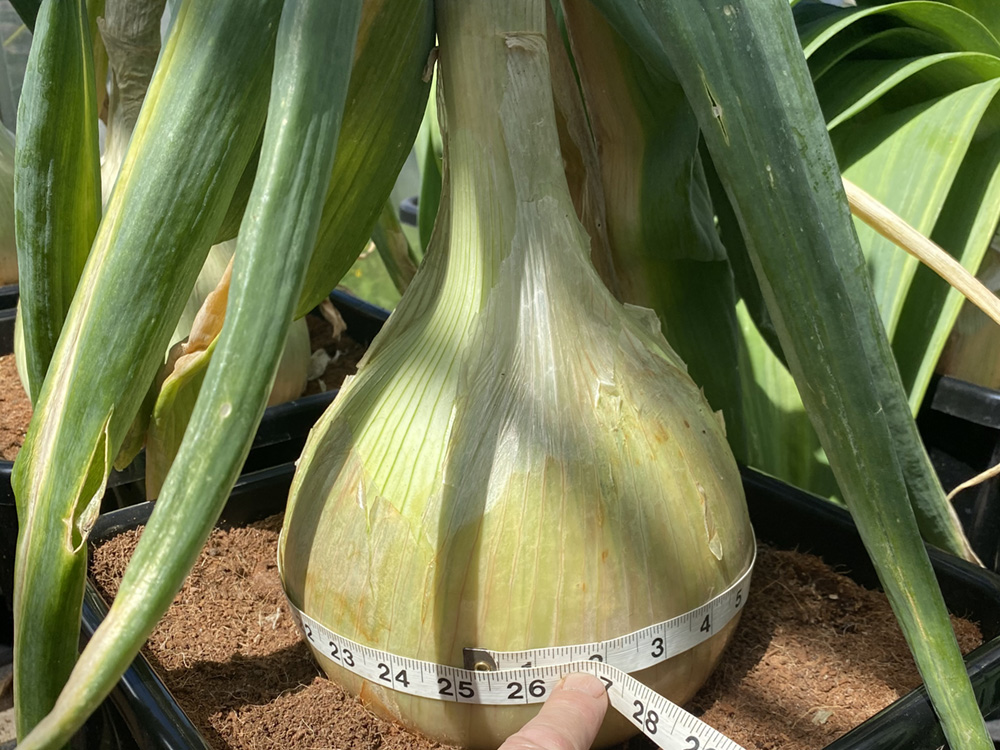
“Two years ago I tried potatoes in a 25 L XL module, they grew well. However one potato would have been far better in order to have a good size for exhibition. Anyway, it was the skin finish that really caught my eye. It was smooth with no marks whatsoever on it, this was probably down to the way in which AutoPot waters and feeds. As the tuber developed it had all the nutrients it required as and when necessary.”
A little over a month from planting out in the AQUAbox-watered, CANNA Coco-filled beds and Medwyn’s potatoes are nearly waist high. “Already they’re showing flowers and these will be regularly removed. Ultimately flower removal helps to channel the plants energies into producing potatoes below ground rather than the seed-producing fruits above ground.”
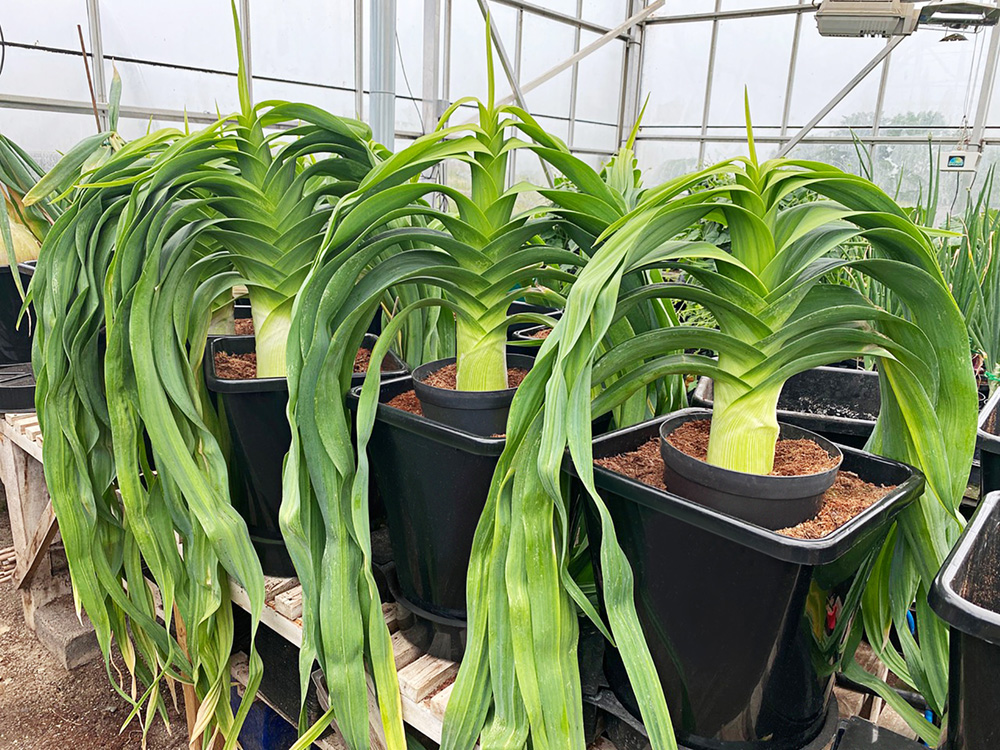
Root veg are by their very subterranean nature somewhat elusive and mysterious. The agonising question is just when to bring up your treasure and how best to do it? Who better to advise on this than our host, the 12-time RHS Chelsea Gold Medal Winner. “Generally after 12 weeks I shall have a feel around the stems to see how large the potatoes are. When I think the majority are up to size I shall stop the feeding and watering system. All the tops or haulms are removed but the potatoes themselves are left in their growing position for at least another ten days. This will allow the skin the set firm on every potato which then allows me to wash them clean with a sponge without the risk of the skin being removed. At that point they will all be lifted and graded. Those good enough for the show will be kept in layers in buckets of CANNA Coco removed from the bed they were growing in with all the buckets kept in the dark in my shed. They will be washed a few days before I leave for Chelsea and each potato wrapped separately in some white kitchen paper.” Amplified by enforced hiatus in 2020, excitement over this year’s RHS Chelsea Flower Show is ramping up ahead of it’s later-than-usual opening in September. It’s about showing what you’ve achieved but also the conversation, and the sharing of ideas, as Medwyn explains.
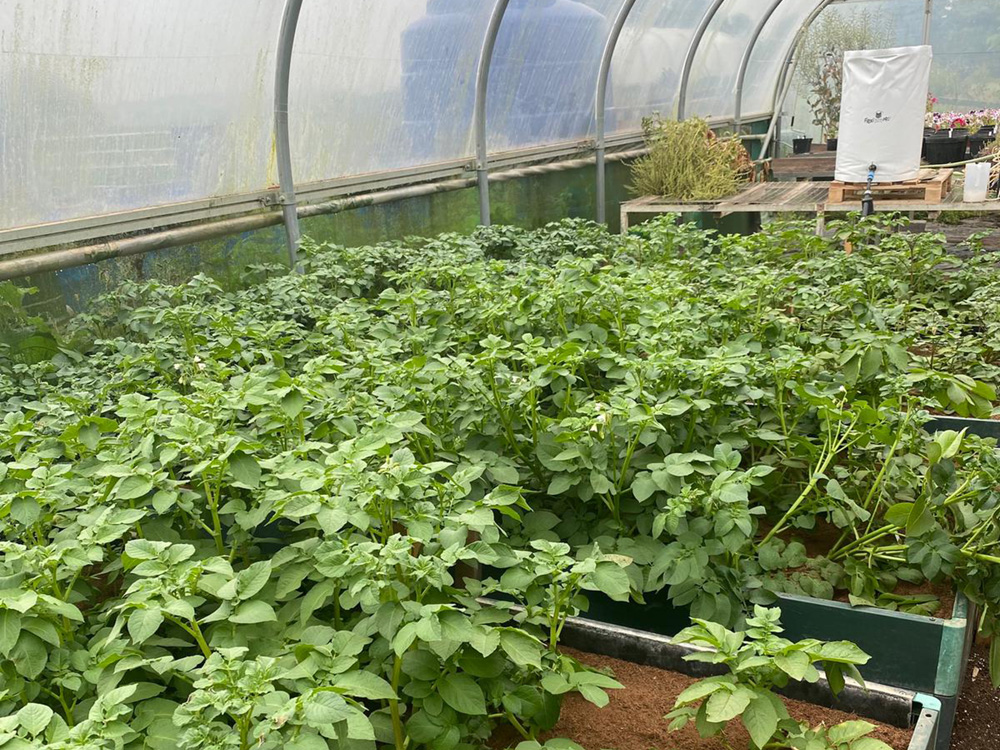
“Since the pandemic there have been no shows at all and that is where the exhibitors meet up and compare notes as well as recommend what they have been growing or using. If I can grow potatoes and 25” circumference onions using AutoPot then anyone and everyone should be able to do the same. It brings growing on to a level playing field with no muck or magic involved, it couldn’t be easier. It’s the sort of investment that the keen exhibitor deserves and as they are so well made they will last for years.”
Look forward to next month where Medwyn will be talking us through some more of his innovative, hot prospects for this year’s shows. Be sure to follow his progress @medwynsofangle on Insta but don’t forget to catch up on Twitter too @medwynsofangles – for a slightly different, conversational experience.
Home » AutoPotatoes with Medwyn Williams
| Monday | 9AM-5PM |
| Tuesday | 9AM-5PM |
| Wednesday | 9AM-5PM |
| Thursday | 9AM-5PM |
| Friday | 9AM-5PM |
| Saturday | Closed |
| Sunday | Closed |

1 thought on “AutoPotatoes with Medwyn Williams”
[…] month we covered Medwyn’s burgeoning crops of AQUAbox-grown potatoes. Though the six varieties underway will undoubted dazzle at Chelsea, potatoes alone do not a […]